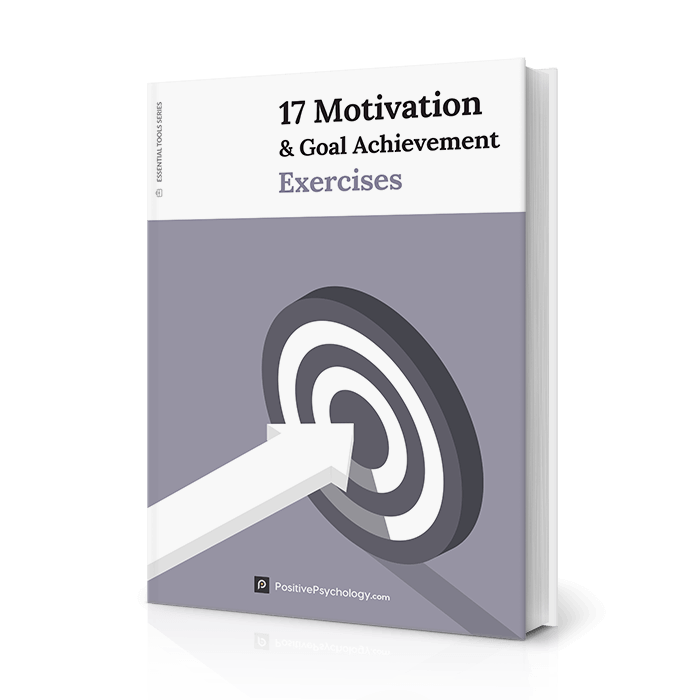14 Career Counseling Assessments & Tests for Your Students
 When looking at job vacancies, how many times have you thought to yourself, ‘Is this job right for me?‘ only to find out it really isn’t.
When looking at job vacancies, how many times have you thought to yourself, ‘Is this job right for me?‘ only to find out it really isn’t.
It often happens to students starting out on their career path. It may even occur in the middle years when people feel they need a career change.
These are the times in life when a career assessment can prove most beneficial. Career assessments tap into personality and aptitude, such as abilities, working style, and skill set (Lent, 2013). They are an invaluable means of guiding the right career choice.
When coupled with tailored questions, a career counseling assessment can help individuals find a career matched with their attributes and abilities.
If career counseling sparks your interest and you want to find out how to help your students or clients with tests and questions, please read on.
Before you continue, we thought you might like to download our three Goal Achievement Exercises for free. These detailed, science-based exercises will help you or your clients create actionable goals and master techniques to create lasting behavior change.
This Article Contains:
10 Best Career Counseling Assessments: Tests & Questionnaires
Tests form a large part of any career assessment. They allow for the personality traits of individuals to be unveiled, alongside skills, strengths, values, interests, emotional intelligence, motivations, and goals (Maree, 2015).
There are many career counseling tests and questionnaires you can use with your students and clients. They comprise both personality and aptitude tests. Let’s look at some of them now.
The Clifton StrengthsFinder
The Clifton StrengthsFinder (CSF) was produced after 40 years of ongoing research (Gallup, 1999). The CSF is able to successfully identify individuals more engaged at work, productive in their roles, healthier, and happier (Gallup, 1999).
The CSF measures thoughts, feelings, and behaviors. The results highlight individuals’ strengths (talent, knowledge, and skills) from a set of 34 strength themes, which can be aligned to make the best academic and career choices.
These strengths are unchangeable traits and assist in achieving full potential. The assessment data can apply to employment, leadership roles, and entrepreneurship.
You can either purchase an access code or a copy of the book with an access code on the Gallup website to take this test.
Riso-Hudson Enneagram Type Indicator
The Riso-Hudson Enneagram Type Indicator (RHETI) is a popular forced-choice personality test used within career assessments (Hudson & Riso, 2000).
It is based upon nine basic personality types/roles:
- Investigator
- Loyalist
- Individualist
- Enthusiast
- Challenger
- Peacemaker
- Reformer
- Helper
- Achiever
The test comprises 144 questions and is scientifically validated.
The RHETI provides a full personality profile, indicating both strengths and weaknesses, and expanded descriptions are available for the top three scores.
RHETI results are helpful, as they show the test taker’s personality style and how to grow and thrive in the workplace. Any low scores indicate areas where someone may wish to improve in their working environment. The RHETI helps to identify weak areas a client may wish to work on.
A copy of the RHETI may be purchased on the Enneagram Institute website.
Holland Code Career Test
The Holland Code Career Test, also known as the RAISEC test, is based on the work of John Holland (Nauta, 2010). This free test highlights which jobs suit the interests, aptitude, and talents of individuals.
In the test, there are six work themes based on six personality types that can be expressed within the workplace:
- Investigative
- Realistic
- Artistic
- Enterprising
- Social
- Conventional
The results highlight the test taker’s highest interest area and how it compares to others, depicting an individual’s Holland code. The results describe what this means concerning an individual’s career choice.
A free copy of the Holland Code Career Test can be found on Truity.com.
The Big Five personality trait model
The Big Five personality trait model, also referred to as the Five-Factor model, (Loehlin, McCrae, Costa, & John, 1998) was developed by personality theorists. It is based on the theory that there are five main determinants of personality:
- Emotional stability (previously known as neuroticism)
- Extroversion
- Openness
- Agreeableness
- Conscientiousness
All individuals fall somewhere along the continuums of each. The Big Five model can indicate and predict behavioral traits and how these may influence employee behavior.
Having insight about our personality traits can allow us to select roles suited to our personality styles to greater occupational success and career advancement. Recruiters may use tests based on the Big Five to find individuals with a specific personality style and skill fit for the roles they wish to fill, and filter out those who don’t. This measure would be ideal for your students and clients who require a thorough and in-depth approach.
Follow the link to take the Big Five Project’s test.
The five-factor model of personality traits aka “the big five”
Values assessment
Values tests help individuals get to know more about their work needs and motivations.
This is done by ranking different aspects of work, representing six underlying work values (Leuty & Hansen, 2011). This ranking of values helps the individual decide what is crucial for them in a job.
The results help a person search for a career in line with their work values, which are in cluster scores. In the Values Assessment linked below, a list of 739 occupations is presented and rank-ordered by how well they match personal work values. The greater parity a job has with work values, the greater satisfaction a person is likely to have with that particular job.
A copy of this test can be purchased at MyPlan.com.
The MAPP career assessment
The Motivational, Appraisal, Personal, Potential (MAPP) career assessment is a reliable and validated career assessment test available in six languages. It is suitable for students looking for a career and others looking for a career change.
This detailed and popular career assessment test provides detailed results and a unique assessment profile to help people find a suitable career.
It gives an overall impression of where true motivations lie among the top 10 vocational areas, allowing for a match against 1,000 possible careers and specific work categories within which a person would excel.
The MAPP career test can be purchased at Assessment.com.
The Keirsey Assessment
This assessment aims to help individuals better understand their temperament in the workplace. This is important, as temperament (as measured by this assessment) is thought to influence communication patterns and workplace contributions.
The test identifies four characters:
- Artisan
- Guardian
- Rational
- Idealist
The Keirsey Assessment highlights how personality and temperament affects leadership, teamwork, sales, marketing, learning, career, and even relationships. The Keirsey Assessment can be accessed for free on the Keirsey website, but payment is required for a copy of the results.
The Career Resources Questionnaire
The Career Resources Questionnaire is a free questionnaire that assesses the resources of an individual critical to their employability.
It is also used to promote personal success in careers by discovering weaknesses, barriers, and strengths.
The results provide a personal career resources profile. They include detailed information on each career resource, including why each resource is important to achieve a successful career and suggested activities that can be used to develop them.
The questionnaire is available in English and German and can be accessed on the Cresogo website.
Career Assessment Questionnaire
This is not a validated tool of career aptitude or personality. Instead, it is designed to generate thought-provoking ideas concerning career selection and satisfaction in work.
The questionnaire examines factors, such as attitudes and motivation to work, and family considerations, which may also affect a person’s career choices.
Questions are open ended and act as an initial screening measure. This can form part of a more extensive assessment and be followed by validated and reliable testing procedures.
This questionnaire can be found on the Charity Village website.
Entrepreneurial Potential Self-Assessment
This questionnaire assesses an individual’s potential for setting up self-employment and going it alone. However attractive it seems, not everyone can work for themselves. The designers of this questionnaire assert that there are specific characteristics of entrepreneurs that are essential to be successful.
This 50-statement questionnaire allows these traits to be examined, teased out, and used with your students or clients who wish to work for themselves.
4 Forms to Give Your Clients

These help the career counselor gather additional information at the initial, middle, and later stages of a job search.
Intake forms
Counselors use intake forms at the outset to gather as much information as possible about the student or client. They allow the career counselor to understand why career counseling assessment is being sought, what the expected goals are, and any obstacles.
An example of an intake form can be found at Yumpu.com.
Feedback forms
Feedback forms come in a variety of templates to provide information on jobs. A copy of such feedback and evaluation forms for employees can be found at Indeed.com.
A copy of one for students looking for feedback from a career counselor can be found on the Marjon University website.
Performance forms
Performance counseling forms assess how well an individual is performing at work and may encourage reflection and planning for the future.
Areas that require improvement can be identified. Performance forms help establish the reasons behind poor work performance, whether it is personal problems, emotional difficulties, or other obstacles, which can lead to a recommendation for therapeutic counseling.
If performance is good, this can also be established.
A copy of a performance form can be found at SHRM.
40 Questions to Ask Your Clients & Students
The career assessment process involves various tests, questionnaires, and forms. These measures are only part of the assessment procedure.
Career counselors can often find out a lot about individuals just from informal discussion. If you are wondering what questions to ask your students and clients, check out this list of ideas.
20 Questions and prompts for students
- How would you describe your way of studying?
- Do you prefer to study alone or with others?
- Do you like a quiet or noisy environment?
- Describe your study methods.
- What books do you like to read?
- What kinds of information do you search for on the internet?
- What are your best/worst subjects at school?
- Have you experienced any problems with learning at school? If so, what are they?
- When did you decide you wanted to go to college?
- Do you have anxiety issues about money?
- Did you ever think of an alternative option to college?
- What job or career would you like in the future?
- What are your favorite social and recreational pastimes?
- Have you encountered problems with your peers? How did you resolve them?
- Did you ever take up counseling services at school? If so, which ones?
- Have you ever met a career counselor before? If so, how useful was the session?
- Have you ever taken personality or aptitude tests to find out more about the best job/career for you?
After completing any test, ask the student:
- Does this profile reflect you correctly?
- Are there changes you would make in this profile?
- What about your recommendations? Are they correct, or would you like to change them?
20 Questions and prompts for clients
- Describe your goals.
- What is most important to you?
- Have you done anything to achieve your goals?
- What timeframe do you have in place to meet these goals?
- What matters the most to you in a job?
- What skills, talents, or competencies are you most proud of? What makes you feel happiest and most accomplished?
- Describe feeling driven and motivated in a job (current or past).
- How do you overcome barriers when you are trying to learn something new?
- Name a step you could take to get you closer to your career goal. What kind of development or opportunities can you create to achieve this?
- What can you practically do now (next week, month, 6 months, 12 months) to reach your goal?
- Have you told anyone about your career goals?
- What opportunities do you have right now in your career?
- How would you act if you were much more assertive and bold?
- What would you ideally want your life to look like in 2, 5, or 10 years?
- How do you want to be remembered by your colleagues?
- What changes do you need to make to get your ideal job or career?
- Define what success means to you.
- Why is it important to do well in your career?
- What do you want in the future?
- What do you like about yourself (abilities and personality traits)?
PositivePsychology.com’s Helpful Tools
You’ll find many worksheets and tools throughout our site that can help inform your career counseling assessments. These can become part of a more extensive assessment, combined with tests, questionnaires, and discussions with clients and students.
Check out the following for a selection of resources to learn more and assist your clients with goal setting in their career development.
- Coping With Stress
This two-part exercise invites clients to list experienced physiological and emotional symptoms of stress and brainstorm strategies to reduce, cope with, or eliminate these sources of stress. This activity may be helpful in a career counseling setting as it helps clients identify triggers that cause stress and pinpoint possible areas of underperformance that may act as barriers to achieving occupational goals. - Adopt a Growth Mindset
This exercise helps clients recognize instances of fixed mindset in their thinking and actions and replace them with thoughts and behaviors more supportive of a growth mindset. A growth mindset is valuable when navigating one’s career as it can open you up to opportunities that may have initially felt too challenging or threatening, allowing you to identify new paths you may not have previously considered. - Identifying Your Ikigai
This worksheet applies the Japanese concept of ikigai, or reason for being, to help clients identify a direction to take their career that aligns with passions and past experiences. - Career Counseling Training: 9 Certifications, Courses, & Degrees
This article walks through the training and certification required to become a career counselor, including specific courses and degree programs you might wish to pursue. - Career Counseling Resources: 10 Techniques for Your Sessions
This article provides valuable resources to career counselor, helping them plan the right career interventions that will lead clients on the right path.
If you’re looking for more science-based ways to help others reach their goals, check out this collection of 17 validated motivation and goal achievement tools for practitioners. Use them to help others turn their dreams into reality by applying the latest science-based behavioral change techniques.
A Take-Home Message
It is important to have a job that fits well into our personality and skills, as a career can easily span more than 40 years. That is a long time doing something that does not suit your skills or talents.
As you can see from this article, selecting the right job is not as simple as leaving it to chance.
The career assessment process can be much more detailed. With thorough tests, assessments, and questioning, you can help your clients and students enter a career that appropriately matches their skills and temperament, leading to a successful career.
We hope this article has allowed you to better understand career counseling work and tests. If this type of counseling piques your interest, you are now equipped with many tools and resources to use with clients and students.
It is definitely a fulfilling area of work, knowing that you are helping individuals to develop, maintain, and sustain the right career path for them.
We hope you enjoyed reading this article. Don’t forget to download our three Goal Achievement Exercises for free.
- Gallup. (1999). Clifton StrengthsFinder. Author.
- Hudson, R., & Riso, D. R. (2000). The Riso-Hudson Enneagram Type Indicator (version 2.5). Enneagram Institute.
- Lent, R. W. (2013). Social cognitive career theory. In S. D. Brown & R. W. Lent (Eds.), Career development and counseling: Putting theory and research to work (2nd ed.) (pp. 115–146). John Wiley & Sons.
- Leuty, M. E., & Hansen, J. I. C. (2011). Evidence of construct validity for work values. Journal of Vocational Behavior, 79(2), 379–390.
- Loehlin, J. C., McCrae, R. R., Costa, P. T., & John, O. P. (1998). Heritabilities of common and measure-specific components of the Big Five personality factors. Journal of Research in Personality, 32(4), 431–453.
- Maree, J. G. (2015). Blending retrospect and prospect in order to convert challenge into opportunities in career counselling. In K. Maree & A. Di Fabio (Eds.), Exploring new horizons in career counselling (pp. 3–24). Brill.
- Nauta, M. M. (2010). The development, evolution, and status of Holland’s theory of vocational personalities: Reflections and future directions for counseling psychology. Journal of Counseling Psychology, 57(1), 11–22.
Let us know your thoughts
Read other articles by their category
- Body & Brain (50)
- Coaching & Application (57)
- Compassion (26)
- Counseling (51)
- Emotional Intelligence (24)
- Gratitude (18)
- Grief & Bereavement (21)
- Happiness & SWB (40)
- Meaning & Values (26)
- Meditation (20)
- Mindfulness (45)
- Motivation & Goals (45)
- Optimism & Mindset (34)
- Positive CBT (29)
- Positive Communication (20)
- Positive Education (47)
- Positive Emotions (33)
- Positive Leadership (18)
- Positive Parenting (4)
- Positive Psychology (33)
- Positive Workplace (37)
- Productivity (17)
- Relationships (46)
- Resilience & Coping (38)
- Self Awareness (21)
- Self Esteem (38)
- Strengths & Virtues (32)
- Stress & Burnout Prevention (34)
- Theory & Books (46)
- Therapy Exercises (37)
- Types of Therapy (64)





What our readers think
How about the “Strong Interest Inventory”? One of the most highly regarded assessment tools.
Hi Greg,
Thank you for your comment and for bringing up the “Strong Interest Inventory.” You’re absolutely right, it’s indeed one of the most respected tools in the field.
The Strong Interest Inventory is a comprehensive assessment that helps individuals understand their work interests in-depth, offering valuable insights into potential career paths. It’s an excellent addition to any career counseling toolkit and certainly complements the resources outlined in the article.
However, our article aimed at highlighting a mix of less known, yet effective tools and some established ones to give a more diverse set of options for our readers. We’ll consider emphasizing more on such widely recognized assessments in our future updates.
Thank you again for your insightful contribution. Your input helps us improve our content and better serve our readers.
Kind regards,
Julia | Community Manager
great
I really benefited from this value
Thank you very much